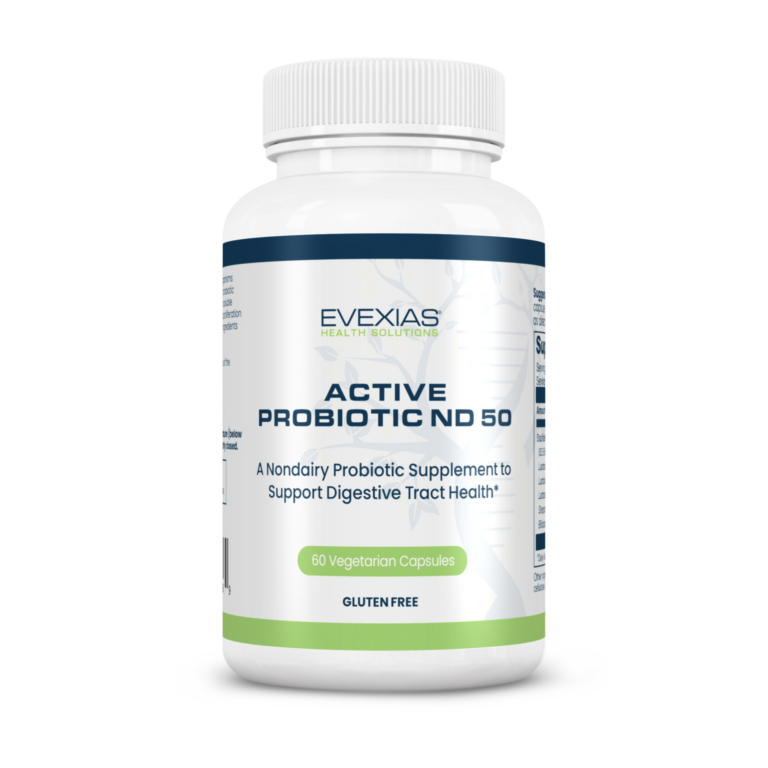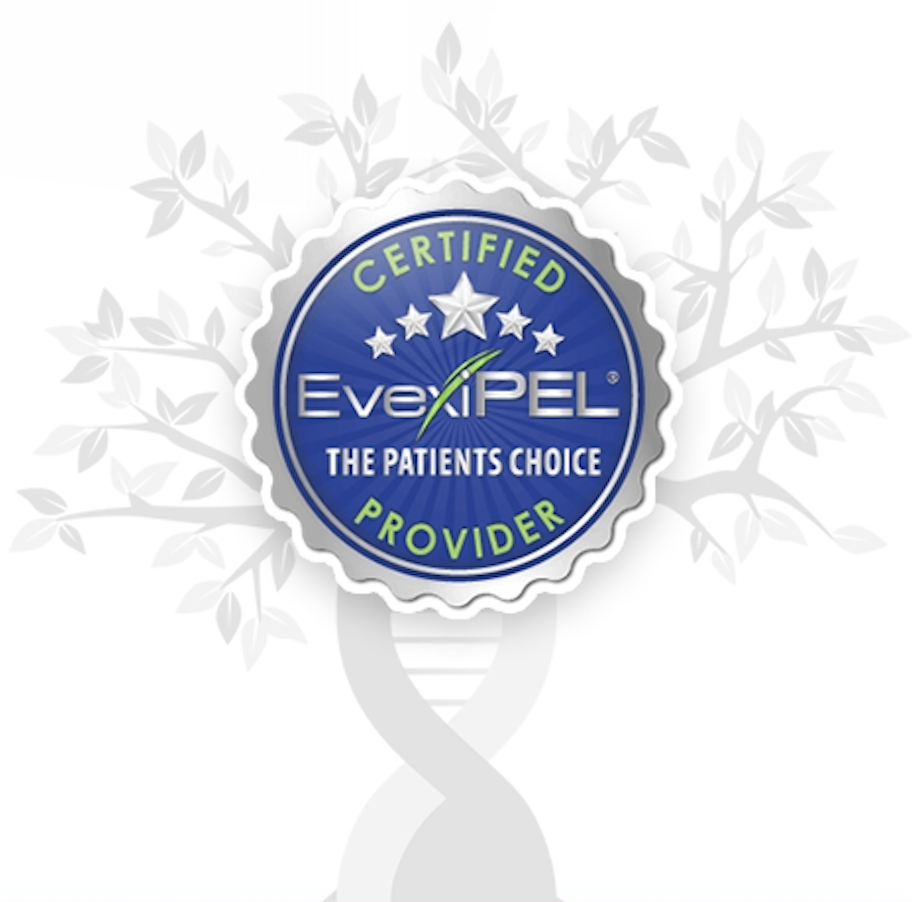Active Probiotic – ND
Active Probiotic-ND is a non-dairy nutraceutical that contains a powerful blend of beneficial probiotics and prebiotic dietary fiber to promote healthy gastrointestinal (GI) function providing balance to the gut microbiome. By supporting a healthy balance of good bacteria in the gut, Active Probiotic-ND also has the potential to support healthy immune, cardiovascular and cognitive function as well as proper metabolism.

The Ingredients
Lactobacilli
A strain of beneficial rod-shaped bacteria that can be found in the GI tract, mouth, and vagina. The various probiotic bacteria classified under this strain have been recognized for their ability to produce lactic acid, which the body uses to support immune response, produce glucose, and generate energy during exercise.
Streptococcus Thermophilus
A strain of probiotics that support healthy immune and GI function. While this strain is less common than Lactobacilli and Bifidobacteria probiotics, Streptococcus thermophilus is known for being a more durable strain that can better handle harsh conditions in the GI tract.
Bifidobacteria
A strain of beneficial y-shaped bacteria that can only be found in the intestines, and they play a critical role in the digestion of fiber and other complex carbohydrates. While Bifidobacteria only make up less than ten percent of the total bacteria in the average adult gut microbiome, they are needed by the body for the production of a wide range of important chemical compounds that include B vitamins, short-chain fatty acids (SCFAs) and other various fatty acids.
Fructooligosaccharides (FOS)
Naturally occurring carbohydrates with prebiotic properties that are commonly used in dietary fiber and artificial sweeteners. Prebiotics are actually a source of food and energy for probiotics. Prebiotics can also further enhance the efficacy of probiotics and stimulate the production of additional microbes that are beneficial to the balance of healthy bacteria in the gut microbiome.
The Science
A typical gut microbiome is a chaotic environment full of good and bad bacteria trying to overwhelm one another and establish dominance. Probiotics are beneficial bacteria and have long been recognized for their positive effect on gastrointestinal (GI) and digestive function. At this point, most people are familiar enough with probiotics to know that adding them to their diet can reduce the risk of bloating, gas or general discomfort due to bad reactions to food in the gut. Yet, medical professionals are also acknowledging the effect of healthy GI function on a wide range of other processes that are essential to whole body health and overall wellness. In fact, medical experts now say that most of the immune system resides in the GI tract, and any GI-related inflammation can have negative ramifications for the body’s ability to avoid and defend itself from illness. With GI health having such a direct relationship with immune function, probiotics have become even more critical for whole body health. Fortunately, there is a wide selection of probiotic nutraceuticals on the market to make sure that the body gets a full range of beneficial bacteria and prebiotics to help optimize overall wellness through healthy GI balance.
Since there are so many different strains and species of probiotics, these beneficial bacteria can be found in a large variety of food sources. Probiotics can be introduced to the body from a host of dairy products and fermented foods that include:
- Yogurt
- Kimchi
- Tempeh
- Natto
- Buttermilk
- Kefir
- Sauerkraut
- Pickles
- Miso
- Kombucha
The wide variety of different probiotic strains and species also lends to the fact that each type of probiotic is unique and provides the body with its own unique set of benefits. For example, species from the Lactobacilli strain of probiotics are found in the GI tract, mouth and vagina, and they are known for their ability to produce lactic acid. The body needs lactic acid to support healthy immune function, the creation of glucose and energy production for exercise. Probiotic species from the Bifidobacteria strain, on the other hand, can only be found in the intestines and are primarily known for their ability to help the body digest fiber and other complex carbohydrates. Streptococcus thermophilus is another strain that is known to support healthy GI and immune function. The characteristic that sets Streptococcus thermophilus from other strains is durability, because species from this strain have been recognized for their ability to survive in the harshest GI tract conditions. These strain-specific roles and benefits just highlight the importance of providing the body with a full range of probiotic microflora instead of only focusing on one or two food sources of probiotics.
Since probiotics are living microorganisms, they require energy and even food to perform their various roles. That is how prebiotics contribute to a balanced gut microbiome. Prebiotics are different types of naturally occurring fiber sourced from various fruits, vegetables and legumes. The more of these fibers that are available for probiotics to eat, the better those probiotics can function and support proper GI health. The selection of foods that can provide the body with prebiotics include:
- Garlic
- Leeks
- Onions
- Asparagus
- Bananas
- Berries
- Oats
With so many different types of probiotics performing their own unique tasks, it can be difficult to provide the body with a full range of beneficial bacteria on a daily basis. That is where professional grade probiotic nutraceuticals can help fill in the gaps. Nutraceutical products like Active Probiotic-ND contain a robust profile of probiotics and prebiotics to counteract and outnumber bad bacteria in a gut microbiome. Packed with with Lactobacilli, Bifidobacteria, Streptococcus thermophilus and prebiotic carbohydrates known as fructooligosaccharides (FOS), Active Probiotic-ND has been expertly developed to promote a healthy balance of bacteria in the gut microbiome. By supporting optimal GI health, this professional grade nutraceutical has the potential to further promote whole body health by supporting proper immune, cardiovascular, metabolic and cognitive function.
